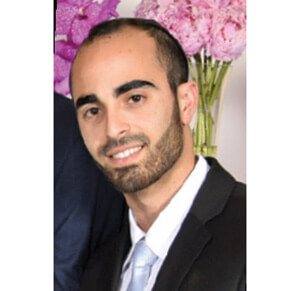
Bouncing off of last week’s topic about the importance of honoring another person and enhancing their esteem, an extremely practical and beneficial method of carrying that out in practice is through encouragement.
The Midrash Tanchuma (Kedoshim 9) relates a story: In a town, there was a spirit that would reside by a well. It happened that a different spirit came to attack that spirit in an attempt to remove it from it’s abode. The threatened spirit went to a local chasid and said to him: “Rebbe, I’ve been living here for many years and neither in the afternoons, nights or mornings have I ever hurt any creature, and now this other spirit has come from a different place seeking to evict me so he can take my place and harm people.” The chasid asked, “what can I do?” The spirit answered, “You and others take your sticks and scythes in your hands, and come to the well at noon and start chanting, ‘Ours is winning, ours is winning!’ and it [the intruding spirit] will flee.” Sure enough, the people did as they were instructed and the intruding spirit fled from there. The Midrash continues that when the Sages heard about this episode, they said: If a being that was not created to need any help [a spirit] still needs help, how much more so do people [who were created in a way where they need help] need help from others!
We see from this Midrash the power of moral support through encouragement. The Etz Yosef makes this point even stronger by pointing out that in actuality, these “cheerleading” people didn’t help the spirit, but rather they appeared to be helping. We learn that even a positive gesture that doesn’t look from our point of view like it’s doing anything beneficial, even that has a tremendous power to fortify and strengthen the confidence of one struggling. It can give him or her a surge of hope and belief in themselves, which can eventually help them overcome their particular challenge. Many times we tell ourselves, “Eh, so what if I say good morning, so what if I give a compliment, it’s not such a big deal already, it’s not like it’s really doing anything, right? Wrong. Listen to this almost unreal story that defeats such a train of thinking:
R’ Elimelech Biderman relates: There was a boy who had an illness from birth that kept recurring. Eventually he recovered and made a seudat hodaah and invited a certain doctor who was involved with him in his times of illness. At the seudah, the boy (at that point already married) shared a story: “When I was in the hospital fighting for my life, I overheard the doctors speaking amongst themselves. They were all saying there is no hope. That it’s over. But there was one doctor who is here tonight who believed differently. Amid all the hopeless remarks, he told the rest of the doctors, ‘You should all know, that despite this boy’s dying condition, there is still some hope for him because I see that this boy has a will to live, and he has a certain happiness and good spirit about him.’ When I heard those words it gave me such a strength, a newfound vigor and confidence to battle and fight my way through the horrible illness, and baruch Hashem, I made it.” But we’re not done. That doctor then got up to speak: “This story is completely true but I just want to add one detail. When I said that this boy has a good spirit and will, I wasn’t referring to you. I meant the other boy on the other side of the room, but for you I didn’t think spirit would help; that’s how bad your situation was.” One remark from one doctor—without even meaning it—saved a life…
We never know what a good word can do to someone. Many times we will never know because when we say an uplifting remark to someone it’s like planting a seed of hope that can ultimately grow and blossom to create a magnitude of confidence and inner strength that’ll be an essential part of the person’s future and self-development. Sometimes a person is surrounded by defeating events in life, their esteem is pummeled; but just throwing in a good word can create a beam of light in a myriad of darkness. And like we see in that story, it might even save someone’s life; you never know. We don’t always get to see the fruits of our easy labor in this world, but in the next world we may see it for ourselves and others. I wouldn’t be surprised if after 120 we’ll be shocked with the display of reward that we seemingly can’t attribute to anything we’ve done. But they might show us and say, “And this time you said hi to this person; and this other time you spoke to this person for a few minutes; over there you smiled to that person; here you sincerely said thank you; and there you encouraged this person…all this reward is accrued to you because from those few good words or acts you initiated a train of success for those people.”
When we realize the greatness of another person, no matter where he or she may be holding in life, it becomes our duty to help them thrive, to offer positive remarks, to uplift, to compliment, and even just to smile and say hello. The thrill of it is exactly never really knowing what it will do, while simultaneously remaining confident that those few nonchalant words or acts of encouragement will take its course in ways we never would have imagined.
By Binyamin Benji
Binyamin Benji learns in Yeshivas Rabbeinu Yitzchak Elchanan. He holds an MSW, and is the author of the weekly Torah Talk in the Sephardic Congregation of Paramus’ newsletter. He can be reached at benjibenji26@gmail.com.











